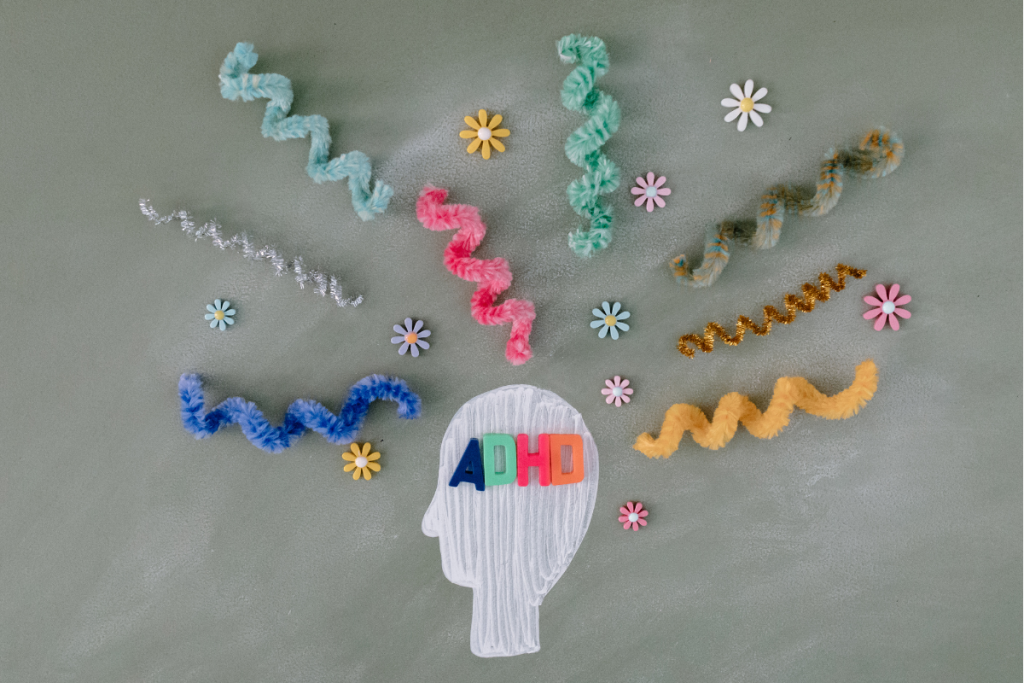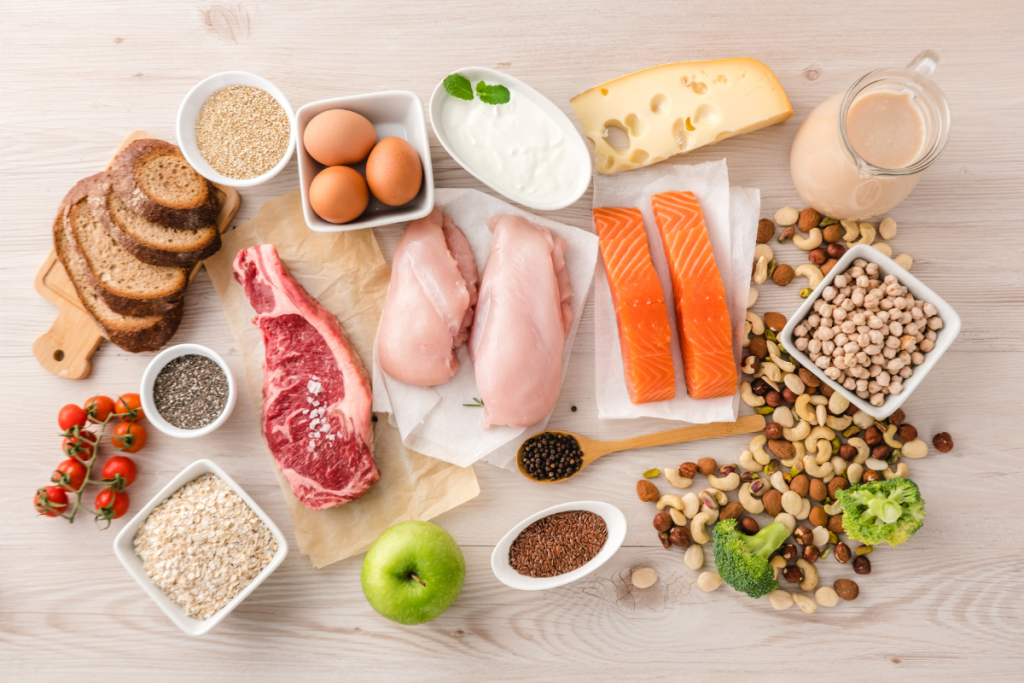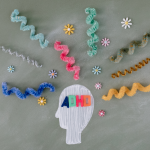Nutrition for Adults and Kids with ADD/ADHD
September 2023 | Wellness Connections
By Linda Wilcox

Food and supplements can play a major role in managing the symptoms of ADD/ADHD. Research shows that diets that include a variety of foods from all food groups and are limited in sugar and processed foods can help improve symptoms of ADHD. Food can also help medications work more efficiently. Since food can lay a foundation for overall good health, here are some basic dietary recommendations for adults and children who have been diagnosed with ADD/ADHD.
- Hydrate
Water makes up about 60% of the body and 80% of the brain. A well hydrated body and brain will function best. Staying hydrated with water throughout the day can help with focus and concentration.
- Eat Regularly
Eating regular and consistent meals and snacks can help maintain blood sugar levels, which can limit irritability and improve concentration. Ideally begin eating within the first two hours of waking and then every three to four hours throughout the day. Some medications can decrease or suppress appetite. It is still important to eat regularly and to watch for other signs the body is ready for more fuel like decreased focus, irritability, headaches, thinking about food, etc.
- Include Protein with Meals and Snacks
Protein takes the body longer to digest which can help prevent blood sugar spikes and help with focus and concentration. Protein-rich foods include lean red meat, pork, poultry, fish, eggs, beans, nuts and nut butters, and dairy.

*Combining a protein with a complex carbohydrate allows the body to digest the food more slowly resulting in a more gradual and sustained blood sugar level and in turn helps improve concentration and behavior.
Examples: cheese + whole grain crackers, apples + peanut butter, nuts + dried fruit
- Limit sugar
It is important to decrease the amount of sugar consumed daily. Sugary foods and sweetened beverages cause a rapid blood sugar spike and then a quick drop in blood sugar which results in feeling irritable and stressed out.
- Get those Omega 3’s
Omega -3’s are essential fats that are used for normal brain function. Getting enough Omega – 3’s in the diet from sources like salmon/chia or flax seeds, and walnuts can improve symptoms like hyperactivity, impulsivity, and concentration. If it is difficult to consume sources of Omega-3’s consider an Omega-3 fish oil supplement in capsule, liquid, or chewable form.
- Maintain Iron Levels
Iron levels tend to be lower in those with ADHD but not at anemic levels. Your healthcare provider can check iron levels to determine if a supplement is needed. Dietary sources of iron include meat and eggs, seafood, beans, some vegetables like spinach, and iron-fortified breads and cereals.
- Check in with Magnesium and Zinc
Magnesium and Zinc both play a role in normal health and helping with ADD symptoms. Magnesium has a calming effect on the brain and helps with attention and concentration. Zinc helps to regulate dopamine or the feel-good chemical in the brain. There are a lot of ways to get both magnesium and zinc from the diet by choosing a variety of nutrient-dense foods from all food groups.
- Limit Additives
Processed foods can contain artificial additives, colors, and preservatives which can increase hyperactivity and decrease attention. Food labels will indicate if there are additives in a product or not. Fresh, unprocessed foods rarely contain additives and nourish the body well.
- Be Aware of Food Sensitivities
Research shows that is not uncommon for those with ADHD to be sensitive to common foods in the diet. When food sensitivities are present, it can make ADHD symptoms worse. A food sensitivity is not a true food allergy but can display allergy-like symptoms. The most common food sensitivities are dairy, wheat, and soy. If food sensitivity is suspected, a gradual elimination diet can be trialed under the direction and care of your healthcare provider and a dietitian.
As always it is important to consult with your healthcare provider and dietitian for help incorporating nutrition and dietary supplements into the management of ADD/ADHD.

Linda is our Registered Dietitian Nutritionist that uses a balanced approach to health and wellness, focusing on nutrition, movement, sleep, and connecting you with other appropriate health resources.
Linda understands and recognizes the courage needed to take the first step in caring for yourself and starting your own health and wellness journey. Learn more about Linda’s services like individual wellness and nutrition consultations, ministry and church wellness consultations, and group presentations here!

